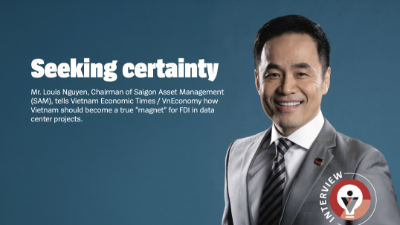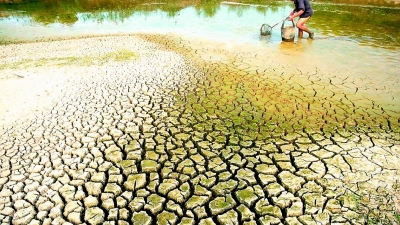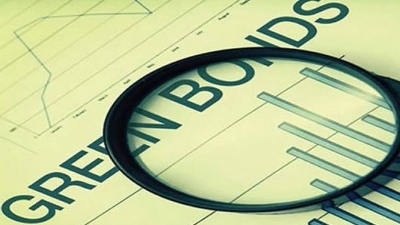With an ambition of becoming a “safe, green, and attractive destination” for the next generation of FDI, Ho Chi Minh City is developing a policy ecosystem that selectively prioritizes investment, fostering “green” projects ranging from clean industries and renewable energy to green transportation and the circular economy.
The challenge for the southern city is no longer simply attracting large volumes of FDI but rather high-quality FDI aligned with environmental, social, and governance (ESG) criteria, as a commitment within its process of international economic integration.
Green FDI for sustainable growth
Green FDI creates a “dual advantage”, combining economic growth with emissions reductions. Though Ho Chi Minh City is the country’s largest economic hub, its traditional growth model - reliant on fossil fuels and exponential expansion - has increasingly exhibited limitations, such as environmental pollution, the overuse of resources, and rising greenhouse gas emissions.
In this context, green FDI projects that apply clean technologies, manage resources and energy efficiently, and comply with sustainability reporting requirements are seen as a “double lever”, simultaneously driving quality growth while contributing to emissions reductions and environmental protection.
Green investments not only facilitate the transfer of advanced technologies but also enhance domestic management capacity. Moreover, they help Ho Chi Minh City strengthen its position as a regional green economic center, contributing to realizing its vision of becoming a “carbon-neutral metropolis”.
Given new market requirements for green standards, adopting a green mindset in the export sector has become urgent. Key export markets such as the EU, Japan, South Korea, and North America are increasingly applying stringent ESG standards on suppliers. This compels both FDI enterprises and domestic companies in Ho Chi Minh City’s supply chains to adapt quickly.
According to Mr. Yamada Kenji, an expert from the Japan International Cooperation Agency (JICA), Ho Chi Minh City possesses advantages in infrastructure and human resources, and if these are coupled with green policies it can fully become a renewable energy hub in the region. By prioritizing green FDI, the city not only increases its participation in global supply chains but also enhances its image as a “clean importer” in the eyes of the global business community.
Pursuing low emissions and clean energy production has become one of the city’s top priorities. It has announced a series of important strategic goals, including developing rooftop solar power in industrial parks, harnessing biogas from waste treatment processes, and gradually shifting from fossil fuels to clean and renewable energy sources.
To achieve these goals, a comprehensive policy framework is needed to encourage FDI enterprises to implement green projects. This involves not only offering incentives but also ensuring a clear legal corridor, adequate supporting infrastructure, and transparency in execution.
Policy tools
To attract “green” FDI, experts have put forward suggestions for building an effective policy toolkit.
Specifically, financial - tax - land incentives could include corporate income tax exemptions or reductions for certified green projects, such as those using ≥ 50 per cent renewable energy, adopting sustainable construction, or applying waste circularity, during their initial operational phase, helping reduce investment costs and improve competitiveness.
Land rent exemptions or reductions could be applied in green industrial parks and high-tech parks equipped with shared infrastructure such as rooftop solar systems, wastewater reuse facilities, and energy storage, to encourage early-stage FDI investment.
Priority land allocation could be given to FDI investors in clean energy, renewable energy equipment manufacturing, circular economy projects, and the development of a “green energy belt” around the city.
“If Ho Chi Minh City offers more favorable tax policies and faster administrative support for renewable energy projects, it will attract even more green FDI enterprises,” said Mr. Nguyen Van Be, Chairman of the Ho Chi Minh City Industrial Park Business Association (HBA).
Many have proposed that the city establish a one-stop green investment service center to centralize application processing and progress monitoring, with a commitment to complete procedures within a maximum of 60 days from the date of receiving all required documents, to shorten project kick-off times.
Additionally, digitizing the environmental impact assessment process, from application submission and appraisal to licensing, would help reduce paperwork, increase transparency, and improve efficiency. A priority processing regime could be applied to green investment models, enabling FDI enterprises with “green” projects to begin operations more quickly.
Experts also suggest issuing mandatory ESG criteria for incentivized FDI projects, including carbon intensity indicators, monitoring of the percentage of renewable energy used, strict waste management plans, and annual sustainability reports audited independently. Priority sectors could include renewable energy, green transportation (electric vehicles (EVs) / green logistics), waste-to-energy projects, and high-tech buildings with green certifications such as LEED and EDGE.
Notably, experts have emphasized the role of green finance and a domestic carbon credit market in promoting sustainable development. Issuing municipal green bonds could help mobilize investment capital for green infrastructure, such as building EV charging stations, installing rooftop solar in industrial parks, and treating landfill gas emissions.
To meet the needs of green FDI projects, green infrastructure must be developed, such as on-site renewable energy systems in industrial parks (for example, rooftop installations and shared infrastructure hubs). Investment is also needed in EV charging stations, green logistics, and smart grids to optimize renewable energy use when available and manage loads intelligently. Authorities could commit to fast-track grid connections for certified green FDI projects, shortening the time needed to access clean energy.
To ensure a stable and affordable energy supply, long-term power purchase agreements (PPAs) between Ho Chi Minh City and renewable energy projects in neighboring provinces such as Dong Nai and Tay Ninh would be essential. This would allow FDI enterprises to purchase clean energy directly from external sources through legally-recognized PPAs, lowering financial and technical barriers to accessing green energy.
To implement these policies, experts believe a strong, cross-sector coordination mechanism is needed, with clear responsibilities assigned to relevant municipal departments and local administrative levels.
The Ho Chi Minh City People’s Committee would take the lead, assign specific tasks to each participating unit, and establish an inter-agency Green FDI Steering Committee responsible for reviewing, monitoring, and reporting on the progress of the policy package’s implementation.
Departments such as Finance and Agriculture and Environment, along with the Management Boards of industrial parks and export processing zones, would contribute within their functions and mandates to realizing this ecosystem and policy framework, ensuring a coordinated and unified management mechanism.
Key focus areas include developing green credit products, selecting green FDI projects, building environmental impact assessment systems, monitoring the application of green criteria, and developing shared energy infrastructure such as EV charging stations and solutions for waste-to-energy recovery.
The city is now finalizing a policy toolkit that prioritizes green FDI, covering financial incentives, land support, and fast-tracked licensing procedures.
Alongside coordinated execution, many suggest the city should establish a transparent and accountable mechanism. This would involve publicly disclosing investment application details, processing times, lists of incentivized green FDI projects, and annual reports on implementation and results, creating pressure for administrative reform and transparency. Penalties, such as administrative fines or special oversight, should be applied if any agency delays or fails to meet its committed timelines.
With its economic strengths, geopolitical position, and drive for innovation, Ho Chi Minh City has the potential to become a leading green FDI destination domestically and internationally, including within Southeast Asia. This requires not just preferential policies but also coordinated, efficient, and transparent execution, from the legal framework, financial incentives, and procedures to monitoring and evaluation systems.









 Google translate
Google translate